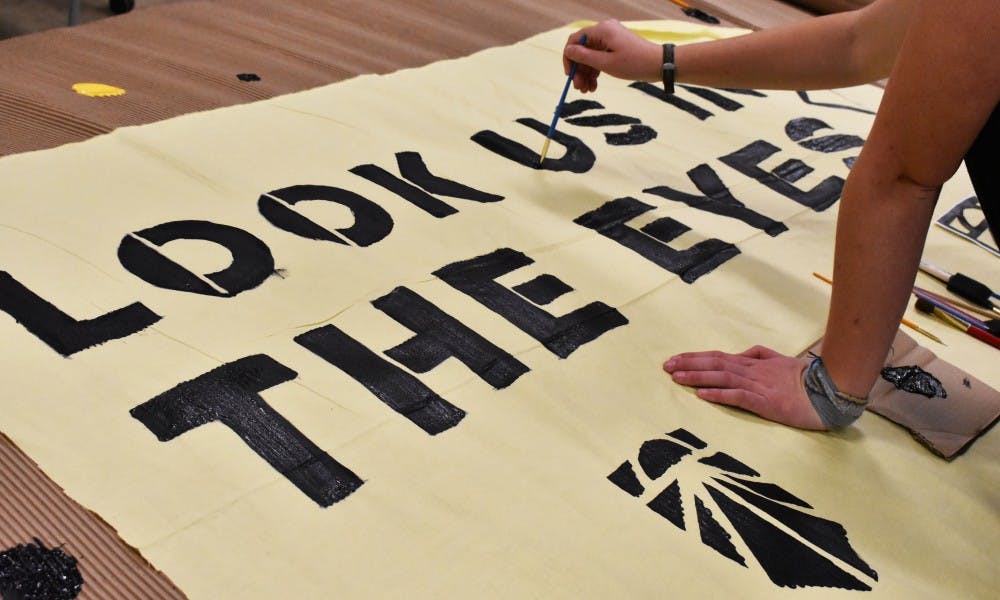This Tuesday, Michigan State University’s Sunrise Hub hosted a Divestment Teach-In, welcoming guest speakers to discuss the ins and outs of divestment and environmental injustice.
Jakob Levengood from the Sunrise MSU Core Team Divestment explained that divestment from fossil fuels is the "halting of investment in companies that engage directly in or profit off the exploration, refinement, transportation, and distribution of fossil fuels."
“At Michigan State University, this means removing the millions of dollars in financial support provided through both direct and indirect investments to companies such as Enbridge, who have a long history of polluting our state and irreparably damaging our environment,” Levengood said.
One of the featured guest speakers was Assistant Professor Daniel B. Ahlquist of James Madison College, who shared similar concerns.
“Yes, exiting our investment in the fossil fuel industry may lead to short-term financial penalties,” he said. “But knowing what we know, how can we justify dragging our feet over worries about short-term losses amounting to a fraction of a percent of our four-billion-dollar endowment?”
They spoke about March 18, 2019, when a fire engulfed nine chemical tanks near Deer Park, Texas.
“This was all over my social media,” said Jessica Diaz, a founding member of the MSU Sunrise Hub and a first-generation Mexican American who grew up in a frontline community in Houston, Texas.
“I’m always wondering, every single day, is this the day that I wake up and I see a headline like this but about my community?" Diaz said. "To me, no student at MSU should be comfortable with the fact that MSU is complicit in the pollution and toxicity, the explosion, all the health effects that communities just like mine are experiencing every day."
She believes all people and communities have a right to equitable protection and enforcement of environmental laws and regulations. Divestment can only work if movements collaborate with frontline communities that see the horrors of environmental abuse every day.
First-year Ph.D. student in the Department of Integrative Biology and the Ecology, Evolution, and Behavior Program Hazel Anderson said that we average temperature increasing, ocean acidification, sea-level rise, drought, flooding, and extreme weather events. Additionally, temperatures in Michigan have risen by a little less than two degrees Fahrenheit since the 1980s and are projected to increase even more by the end of the century.
“Sunrise MSU’s divestment campaign is asking the MSU Board of Trustees to immediately end all current investments in companies that fund and profit off of fossil fuels, as well as commit to cease all future investments in these companies,” Levengood said.
He added that lake levels are projected to decrease. So, there’ll be more frequent rainstorms and less rainfall in the summer months. With those longer summers, the Great Lakes will experience more dead zones, which will have a cascading effect on the species and environments in and around the area.
“We are one of the largest universities in the country," Ahlquist said. “What we do and the message we send by doing it will have ripple effects. The impact of our divestment alone won’t hurt the fossil fuel companies or put a dent in the climate crisis, but the avalanche of investments we can help create just might.”
Support student media!
Please consider donating to The State News and help fund the future of journalism.
Discussion
Share and discuss “MSU Sunrise discuss divestment, environmental injustice” on social media.







